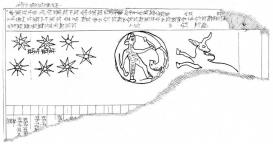The image of science as a mirror of nature has been key not only to defining science but also to its treatment as a historical phenomenon. This image lies at the root of a debate in the philosophy of science that came to be known after Karl Popper as “the demarcation problem.” The central objective of demarcation was the establishment of criteria for a special epistemic warrant for scientific knowledge and for distinguishing absolutely between scientific thought and other forms of knowledge and practice. Whereas the demarcation of science has been firmly situated in the Philosophy of Science, its presence in the History of Science has not been as fully explored. This project focuses on the impact the demarcation problem and its discourse has had on the historiography of the sciences of the ancient Near East and Western Mediterranean. It aims to explore the workings of demarcation when it comes to the creation of the categorical chimeras of science, religion, and magic in the ancient world. The problem of the mismatch between modern and premodern categories is a well-trodden analytical and interpretive path, but this project seeks the historical implications of the demarcation problem not simply as a problem of modern criteria being anachronistic, or the result of what H. Dreyfus and C. Taylor called a “framework mistake,” but as a fundamental problem of the intersections of thought, language, and the experienced world as they manifest in various cultures of science.

Astrological cuneiform tablet from Hellenistic Uruk (VAT 7851). Published in E.F. Weidner, Gestirn-
Project
(2018)
